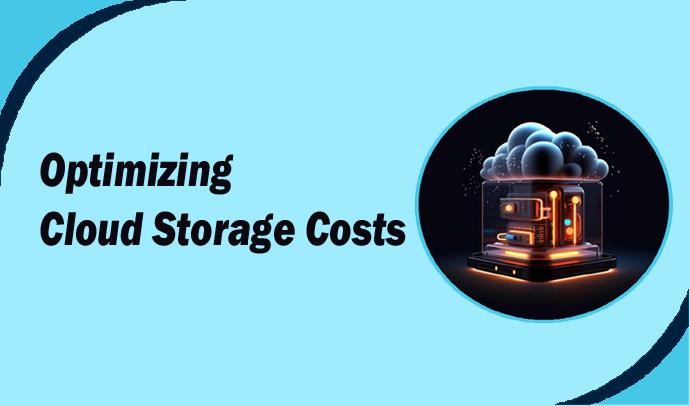Optimizing Cloud Storage Costs: Strategies for Efficient Data Management
Introduction
The cloud has revolutionized the way we store and manage data, offering flexibility and scalability that was once unimaginable. However, this convenience often comes at a price. Cloud storage costs can add up quickly, especially if your organization is not effectively managing its data. In this blog, we’ll explore strategies for optimizing cloud storage costs through efficient data management.

1. Embrace Data Lifecycle Management:
One of the first steps to optimizing your cloud storage costs is to implement a data lifecycle management strategy. Identify the different stages of data from creation to archiving and set clear guidelines for when data should be moved or deleted. This ensures that you are not paying for the storage of data that is no longer actively in use.
2. Utilize Intelligent Tiering:
Cloud providers offer storage options with different performance and cost characteristics. Leverage intelligent tiering to automatically move data between storage classes based on access patterns. Frequently accessed data can be stored in high-performance storage, while less frequently accessed data can be moved to lower-cost storage solutions.
3. Implement Effective Backup and Archiving:
Establish a backup and archiving strategy that aligns with your data retention policies. Regularly back up your data to ensure data recovery in case of incidents. For long-term archiving, consider using lower-cost storage options designed for data that is rarely accessed but must be retained for compliance or historical reasons.

4. Utilize Compression and Deduplication:
Before storing data in the cloud, employ compression and deduplication techniques. This reduces the volume of data you need to store, effectively lowering your storage costs. Many cloud services offer built- in tools for these purposes.
5. Monitor and Optimize Resource Utilization:
Continuous monitoring is the key to efficient data management. Use cloud-native monitoring and reporting tools to keep track of your storage usage and costs. Identify any underutilized resources, and adjust your allocations accordingly to prevent over-provisioning.
6. Leverage Cloud Cost Management Tools:
Consider using cloud cost management platforms like Cloudopty to gain deeper insights into your cloud storage expenses. These tools provide real-time cost visibility, customizable alerts, and actionable recommendations for cost optimization.
Conclusion
Optimizing cloud storage costs through efficient data management is essential for organizations looking to make the most of their cloud investments. By implementing data lifecycle management, using intelligent tiering, establishing effective backup and archiving practices, employing compression and deduplication, monitoring resource utilization, and leveraging cloud cost management tools, you can significantly reduce your cloud storage expenses while maintaining the performance and availability your business requires.
Don’t let cloud storage costs spiral out of control. With the right strategies and tools, you can achieve a perfect balance between cost- efficiency and data management. For more insights and assistance in optimizing your cloud storage costs, visit cloudopty.com.
